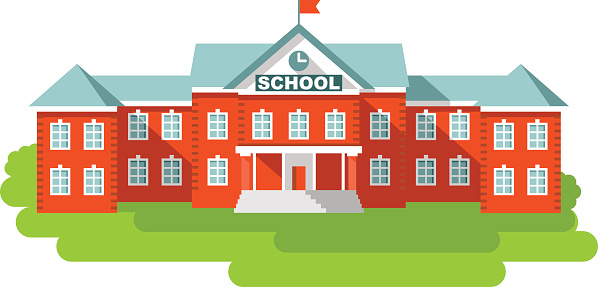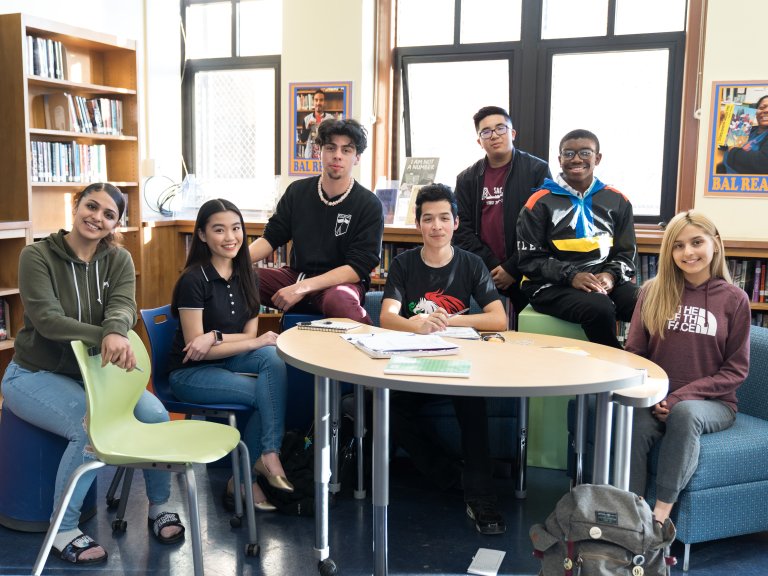Exactly How Schools Play an Important Duty in Shaping Future Leaders and Innovators
Institutions are crucial in forming future leaders and trendsetters via the cultivation of essential thinking, creative thinking, and collaboration. By incorporating project-based knowing and interdisciplinary researches, schools test students to analyze and synthesize complex information. Educators act as coaches, guiding students and supporting their possibility, while extracurricular tasks even more develop leadership skills and durability. This vibrant setting not only concentrates on specific toughness yet additionally stresses the significance of team effort, necessary for navigating tomorrow's obstacles. Exactly how exactly do these elements interplay to develop a robust foundation for future success?
Cultivating Vital Thinking
In today's rapidly developing globe, cultivating critical believing within universities has come to be paramount. As society comes to grips with significantly complicated worldwide obstacles, the ability to evaluate, review, and manufacture details is necessary. Institutions play an important function in establishing these skills, preparing students to browse and address multifaceted issues with notified, reasoned choices.
To grow vital reasoning, educators use different pedagogical techniques that urge active understanding and intellectual involvement. Class conversations, problem-based understanding, and Socratic questioning contribute in promoting logical and reflective idea procedures. By challenging trainees to question presumptions and consider several viewpoints, these methods make sure a deeper understanding of subject beyond memorizing memorization.
Moreover, integrating essential believing across the curriculum enhances its importance and applicability in varied contexts. Subjects such as mathematics, science, background, and literary works each offer special possibilities to develop pupils' important faculties. As an example, examining historic events calls for examining sources and understanding context, while scientific questions demands rigorous theory testing and evidence-based thinking.
Inevitably, instilling critical thinking skills in students furnishes them with the cognitive devices necessary for long-lasting understanding and versatility. It is with this fundamental competence that future leaders will certainly have the ability to innovate, address issues, and contribute meaningfully to society.
Encouraging Creative Thinking
Embracing creative thinking within educational structures galvanizes trainees to believe past standard borders and discover cutting-edge options. By incorporating creative ventures and imaginative thinking workouts into the educational program, colleges cultivate an atmosphere where originality and creative thought are valued. This technique not only enhances the academic experience but additionally gears up trainees with the capability to deal with real-world challenges in unique methods.
Educational establishments can foster creative thinking through diverse ways such as project-based knowing, interdisciplinary research studies, and the consolidation of arts and innovation. Project-based understanding, for example, urges trainees to use their knowledge in useful, frequently collective, projects that demand innovative analytical skills. Interdisciplinary researches permit pupils to attract links between various topics, thereby broadening their viewpoints and boosting their innovative abilities.
In addition, providing students with opportunities to involve with arising innovations, such as coding and digital layout, further supports their innovative possibility. These activities prompt students to experiment, fail, and iterate, which are crucial parts of the innovative process (Save Temecula Schools). By keeping a helpful atmosphere where trial and error is urged, colleges can make sure that students establish the self-confidence to pursue cutting-edge concepts
Essentially, supporting creativity in educational setups is indispensable for forming future leaders and Full Report innovators with the ability of addressing complicated global concerns with resourcefulness.
Supporting Partnership

Implementing group-based discovering modules and participating tasks allows trainees to experience the dynamics of synergy firsthand. This not only prepares them for the collective nature of modern work environments but also supports management qualities as they commonly need to handle functions such as task managers or group organizers. Additionally, collaboration in the class can break down social barriers and advertise inclusivity, making sure that each student feels valued and listened to.
In addition, incorporating technology can further support collective efforts. Devices like shared digital work spaces and interactive platforms make it possible for students to interact successfully, also outside the class. As students establish these collaborative abilities, they are much better geared up to deal with complicated obstacles and introduce, laying the groundwork for their future duties as innovators and leaders.
Function of Educators as Mentors

Mentorship involves personalized attention, where educators determine and support private toughness and address weak points. Save Temecula Schools. Via one-on-one communications, instructors can customize their suggestions and assistance to meet each student's unique requirements, fostering a feeling of self-confidence and durability. This tailored method cultivates a development attitude, motivating students to watch failures as opportunities for discovering and growth
In addition, educators work as good example, showing the values of empathy, perseverance, and integrity. Their activities and perspectives give a plan for students to imitate, instilling a visit this site right here feeling of moral obligation and social recognition. By creating a encouraging and inclusive class atmosphere, educators enable pupils to create social abilities that are vital for like it effective leadership.
Basically, the mentorship given by instructors lays a foundational structure for the growth of future leaders, furnishing them with the knowledge, abilities, and worths needed to master an ever-evolving world.
Impact of Extracurricular Activities
When integrated successfully into the academic structure, extracurricular tasks substantially improve pupil growth and leadership possibility. These activities give students with opportunities to check out rate of interests beyond the conventional educational program, promoting a well-rounded skill set.
Furthermore, extracurricular involvement urges creativity and development. Students participated in dramatization, music, or dispute clubs find out to think critically and strategy problems from diverse viewpoints. These experiences infuse confidence, allowing trainees to articulate their ideas and take effort in various setups. By collaborating with peers from various backgrounds, trainees also develop compassion and communication abilities, important traits for future leaders.
Study shows that students included in such programs tend to have higher qualities and far better presence documents. Therefore, institutions that prioritize a balanced approach to education and learning, incorporating robust extracurricular programs, are extra likely to produce pioneers and leaders geared up to satisfy the difficulties of the future.
Verdict
In conclusion, schools dramatically form future leaders and trendsetters by supporting important reasoning, imagination, and cooperation amongst pupils. By fostering a helpful atmosphere that values individual toughness and teamwork, colleges furnish students with the required abilities to navigate future challenges and drive technology.
As students create these joint abilities, they are much better outfitted to take on complex obstacles and introduce, laying the foundation for their future roles as leaders and trendsetters.
By promoting important thinking and problem-solving abilities, educators aid pupils navigate intricate challenges, preparing them for leadership duties in various fields.
By working together with peers from different backgrounds, pupils likewise establish empathy and communication skills, crucial characteristics for future leaders.
In conclusion, institutions significantly shape future leaders and innovators by supporting critical reasoning, creativity, and collaboration amongst pupils. By cultivating a helpful environment that values specific strengths and team effort, institutions furnish pupils with the needed abilities to browse future difficulties and drive development.